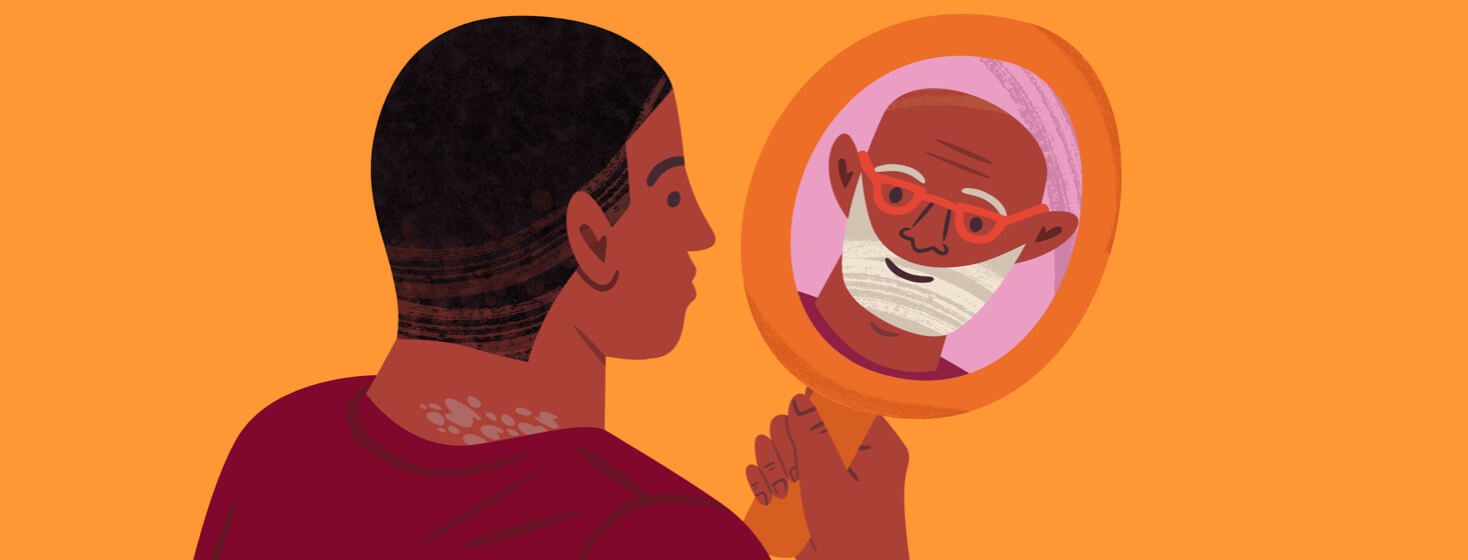Do You Think Psoriatic Disease Worsens With Age?
When I was in my 20's, this question was constantly at the back of my mind. Will my illness worsen as I grow older? That was what my father had thought. He said that every year I got more and more flakes and more and more pain. Maybe that was because I was a growing child.
Anyway, this question and the stigma around it have grown into a very common misconception. People tend to forget that our symptoms are caused by an over-active immune system, not age. Yet, there are a few exceptions to this apparent piece of good news. Read on to see what I mean.
Factors for flare-up triggers
If you recall the first time you started to notice symptoms of psoriatic disease, you would most probably have identified a particularly stressful moment in your life. Was it the death of a loved one? The end of a relationship or an illness? Or even moving to a different state with an unfamiliar or harsher climate?
There are so many things that could trigger a flare. Aside from the disease hereditary trait, what happens in your life is equally, if not, more important. So, with this understanding, we look at the great paradox of aging.
Changes in immune systems
Most medical experts have indicated that between the ages of 15 to 25, and around 50, are when symptoms of psoriasis appear to be at their worst. For one, our immune systems are most active when we are younger, which enables a greater production of T cells, the component closely linked to psoriasis. Then, at 50, your immune system begins to irregulate itself again, especially for women during menopause.
As our body becomes weaker and less active, it will begin to have a reduced inflammatory effect on your body which should reduce the severity of the disease as well as the frequency of flare-ups. However, this is first if you already have the disease under control through treatments or specific lifestyle choices.
For all these, we can indeed raise our glasses of non-alcoholic beverages to aging. But here comes the tricky part.
Considering comorbidities
We also might get higher rates of other diseases such as psoriatic arthritis, type 2 diabetes, heart disease, high blood pressure, psoriasis, and others. Even if we have our symptoms under control, a weaker immune system generally makes managing each of these comorbidities harder.
For example, our joints will be subject to wear-and-tear over the years, and with psoriatic arthritis, the inflammation can cause more pain and can result in a further deterioration of mobility. We find ourselves at greater risk of heart disease as prolonged bodily inflammation may worsen heart health.
Aging with psoriatic arthritis
The best way to combat these risks is to adopt a holistic approach towards strengthening our health and allowing ourselves to age as gracefully as possible. I know easier said than done right?
We all know that this disease makes us depressed, and we get stress and want to drink and smoke. Not everyone does this, but I sure was on this path for a while.
I would say overall we do get worst with age, but this is just me. There is no cure yet, so let us try and avoid triggers and stay proactive. I work with my doctors all the time to manage my symptoms. If I have any questions about my treatments, I asked. If I feel my medication is not working, I have my doctor make changes to improve what is going on with me.
Remember that you are never alone.

Join the conversation